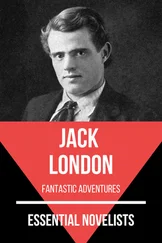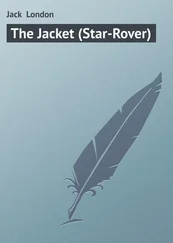Jack London - Before Adam
Здесь есть возможность читать онлайн «Jack London - Before Adam» весь текст электронной книги совершенно бесплатно (целиком полную версию без сокращений). В некоторых случаях можно слушать аудио, скачать через торрент в формате fb2 и присутствует краткое содержание. Жанр: Классическая проза, Исторические приключения, на английском языке. Описание произведения, (предисловие) а так же отзывы посетителей доступны на портале библиотеки ЛибКат.
- Название:Before Adam
- Автор:
- Жанр:
- Год:неизвестен
- ISBN:нет данных
- Рейтинг книги:5 / 5. Голосов: 1
-
Избранное:Добавить в избранное
- Отзывы:
-
Ваша оценка:
- 100
- 1
- 2
- 3
- 4
- 5
Before Adam: краткое содержание, описание и аннотация
Предлагаем к чтению аннотацию, описание, краткое содержание или предисловие (зависит от того, что написал сам автор книги «Before Adam»). Если вы не нашли необходимую информацию о книге — напишите в комментариях, мы постараемся отыскать её.
Before Adam — читать онлайн бесплатно полную книгу (весь текст) целиком
Ниже представлен текст книги, разбитый по страницам. Система сохранения места последней прочитанной страницы, позволяет с удобством читать онлайн бесплатно книгу «Before Adam», без необходимости каждый раз заново искать на чём Вы остановились. Поставьте закладку, и сможете в любой момент перейти на страницу, на которой закончили чтение.
Интервал:
Закладка:
He kept me there half a day before he gave up. After that, when Lop-Ear and I were reasonably sure of gaining the double-cave, we did not retreat up the cliff to our own cave when Red-Eye came upon the scene. All we did was to keep an eye on him and see that he did not cut across our line of retreat.
It was during this winter that Red-Eye killed his latest wife with abuse and repeated beatings. I have called him an atavism, but in this he was worse than an atavism, for the males of the lower animals do not maltreat and murder their mates. In this I take it that Red-Eye, in spite of his tremendous atavistic tendencies, foreshadowed the coming of man, for it is the males of the human species only that murder their mates.
As was to be expected, with the doing away of one wife Red-Eye proceeded to get another. He decided upon the Singing One. She was the granddaughter of old Marrow-Bone, and the daughter of the Hairless One. She was a young thing, greatly given to singing at the mouth of her cave in the twilight, and she had but recently mated with Crooked-Leg. He was a quiet individual, molesting no one and not given to bickering with his fellows. He was no fighter anyway. He was small and lean, and not so active on his legs as the rest of us.
Red-Eye never committed a more outrageous deed. It was in the quiet at the end of the day, when we began to congregate in the open space before climbing into our caves. Suddenly the Singing One dashed up a run-way from a drinking-place, pursued by Red-Eye. She ran to her husband. Poor little Crooked-Leg was terribly scared. But he was a hero. He knew that death was upon him, yet he did not run away. He stood up, and chattered, bristled, and showed his teeth.
Red-Eye roared with rage. It was an offence to him that any of the Folk should dare to withstand him. His hand shot out and clutched Crooked-Leg by the neck. The latter sank his teeth into Red-Eye's arm; but the next moment, with a broken neck, Crooked-Leg was floundering and squirming on the ground. The Singing One screeched and gibbered. Red-Eye seized her by the hair of her head and dragged her toward his cave. He handled her roughly when the climb began, and he dragged and hauled her up into the cave.
We were very angry, insanely, vociferously angry. Beating our chests, bristling, and gnashing our teeth, we gathered together in our rage. We felt the prod of gregarious instinct, the drawing together as though for united action, the impulse toward cooperation. In dim ways this need for united action was impressed upon us. But there was no way to achieve it because there was no way to express it. We did not turn to, all of us, and destroy Red-Eye, because we lacked a vocabulary. We were vaguely thinking thoughts for which there were no thought-symbols. These thought-symbols were yet to be slowly and painfully invented.
We tried to freight sound with the vague thoughts that flitted like shadows through our consciousness. The Hairless One began to chatter loudly. By his noises he expressed anger against Red-Eye and desire to hurt Red-Eye. Thus far he got, and thus far we understood. But when he tried to express the cooperative impulse that stirred within him, his noises became gibberish. Then Big-Face, with brow-bristling and chest-pounding, began to chatter. One after another of us joined in the orgy of rage, until even old Marrow-Bone was mumbling and spluttering with his cracked voice and withered lips. Some one seized a stick and began pounding a log. In a moment he had struck a rhythm. Unconsciously, our yells and exclamations yielded to this rhythm. It had a soothing effect upon us; and before we knew it, our rage forgotten, we were in the full swing of a hee-hee council.
These hee-hee councils splendidly illustrate the inconsecutiveness and inconsequentiality of the Folk. Here were we, drawn together by mutual rage and the impulse toward cooperation, led off into forgetfulness by the establishment of a rude rhythm. We were sociable and gregarious, and these singing and laughing councils satisfied us. In ways the hee-hee council was an adumbration of the councils of primitive man, and of the great national assemblies and international conventions of latter-day man. But we Folk of the Younger World lacked speech, and whenever we were so drawn together we precipitated babel, out of which arose a unanimity of rhythm that contained within itself the essentials of art yet to come. It was art nascent.
There was nothing long-continued about these rhythms that we struck. A rhythm was soon lost, and pandemonium reigned until we could find the rhythm again or start a new one. Sometimes half a dozen rhythms would be swinging simultaneously, each rhythm backed by a group that strove ardently to drown out the other rhythms.
In the intervals of pandemonium, each chattered, cut up, hooted, screeched, and danced, himself sufficient unto himself, filled with his own ideas and volitions to the exclusion of all others, a veritable centre of the universe, divorced for the time being from any unanimity with the other universe-centres leaping and yelling around him. Then would come the rhythm—a clapping of hands; the beating of a stick upon a log; the example of one that leaped with repetitions; or the chanting of one that uttered, explosively and regularly, with inflection that rose and fell, "A-bang, a-bang! A-bang, a-bang!" One after another of the self-centred Folk would yield to it, and soon all would be dancing or chanting in chorus. "Ha-ah, ha-ah, ha-ah-ha!" was one of our favorite choruses, and another was, "Eh-wah, eh-wah, eh-wah-hah!"
And so, with mad antics, leaping, reeling, and over-balancing, we danced and sang in the sombre twilight of the primeval world, inducing forgetfulness, achieving unanimity, and working ourselves up into sensuous frenzy. And so it was that our rage against Red-Eye was soothed away by art, and we screamed the wild choruses of the hee-hee council until the night warned us of its terrors, and we crept away to our holes in the rocks, calling softly to one another, while the stars came out and darkness settled down.
We were afraid only of the dark. We had no germs of religion, no conceptions of an unseen world. We knew only the real world, and the things we feared were the real things, the concrete dangers, the flesh-and-blood animals that preyed. It was they that made us afraid of the dark, for darkness was the time of the hunting animals. It was then that they came out of their lairs and pounced upon one from the dark wherein they lurked invisible.
Possibly it was out of this fear of the real denizens of the dark that the fear of the unreal denizens was later to develop and to culminate in a whole and mighty unseen world. As imagination grew it is likely that the fear of death increased until the Folk that were to come projected this fear into the dark and peopled it with spirits. I think the Fire People had already begun to be afraid of the dark in this fashion; but the reasons we Folk had for breaking up our hee-hee councils and fleeing to our holes were old Saber-Tooth, the lions and the jackals, the wild dogs and the wolves, and all the hungry, meat-eating breeds.
CHAPTER XV
Lop-Ear got married. It was the second winter after our adventure-journey, and it was most unexpected. He gave me no warning. The first I knew was one twilight when I climbed the cliff to our cave. I squeezed into the entrance and there I stopped. There was no room for me. Lop-Ear and his mate were in possession, and she was none other than my sister, the daughter of my step-father, the Chatterer.
I tried to force my way in. There was space only for two, and that space was already occupied. Also, they had me at a disadvantage, and, what of the scratching and hair-pulling I received, I was glad to retreat. I slept that night, and for many nights, in the connecting passage of the double-cave. From my experience it seemed reasonably safe. As the two Folk had dodged old Saber-Tooth, and as I had dodged Red-Eye, so it seemed to me that I could dodge the hunting animals by going back and forth between the two caves.
Читать дальшеИнтервал:
Закладка:
Похожие книги на «Before Adam»
Представляем Вашему вниманию похожие книги на «Before Adam» списком для выбора. Мы отобрали схожую по названию и смыслу литературу в надежде предоставить читателям больше вариантов отыскать новые, интересные, ещё непрочитанные произведения.
Обсуждение, отзывы о книге «Before Adam» и просто собственные мнения читателей. Оставьте ваши комментарии, напишите, что Вы думаете о произведении, его смысле или главных героях. Укажите что конкретно понравилось, а что нет, и почему Вы так считаете.











